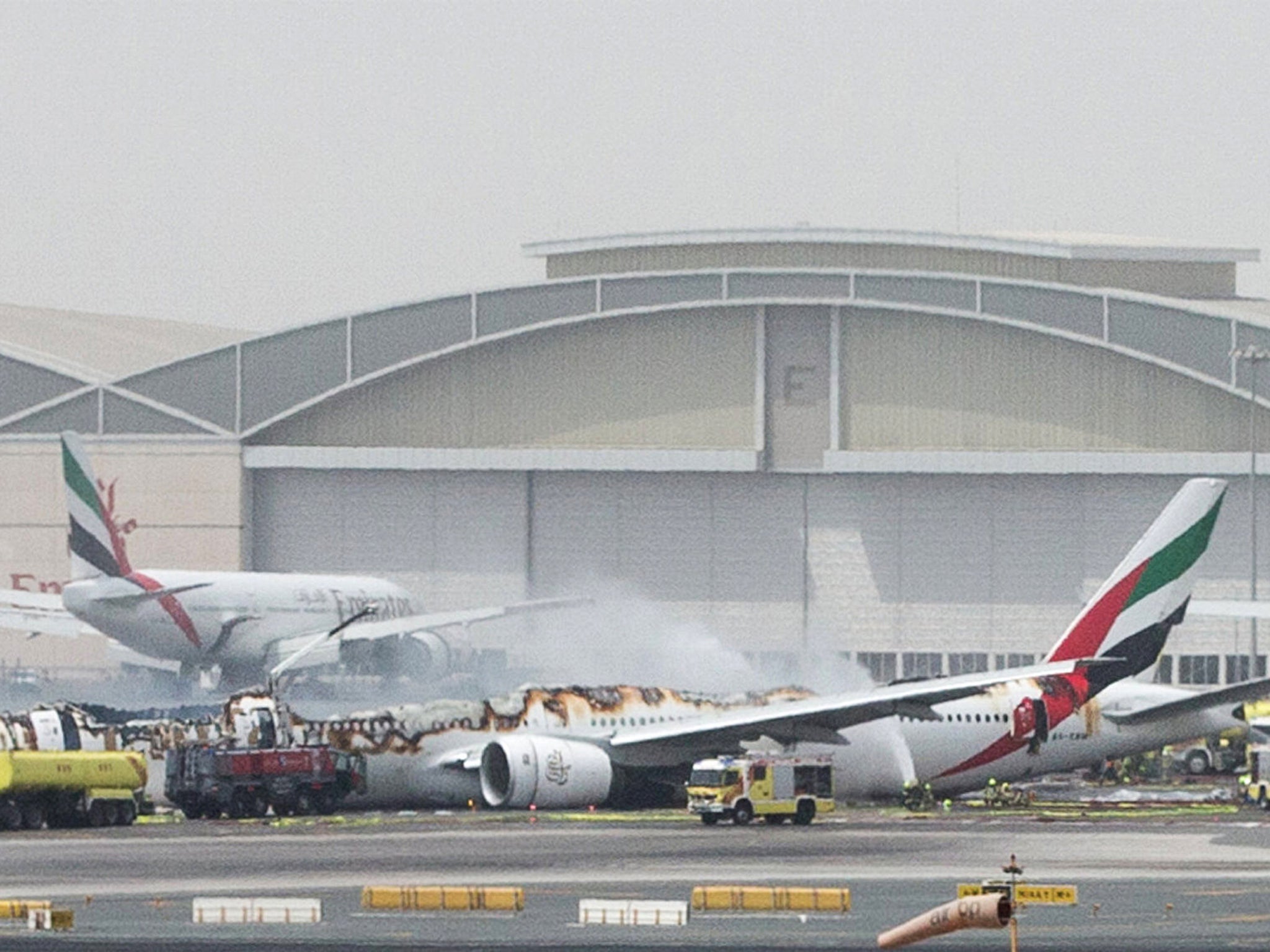Dubai airport fire: what the incident really means for Emirates and its passengers
A '4-hour network-wide delay' for flights to and from Dubai? If only it were so simple

Your support helps us to tell the story
From reproductive rights to climate change to Big Tech, The Independent is on the ground when the story is developing. Whether it's investigating the financials of Elon Musk's pro-Trump PAC or producing our latest documentary, 'The A Word', which shines a light on the American women fighting for reproductive rights, we know how important it is to parse out the facts from the messaging.
At such a critical moment in US history, we need reporters on the ground. Your donation allows us to keep sending journalists to speak to both sides of the story.
The Independent is trusted by Americans across the entire political spectrum. And unlike many other quality news outlets, we choose not to lock Americans out of our reporting and analysis with paywalls. We believe quality journalism should be available to everyone, paid for by those who can afford it.
Your support makes all the difference.The first message sent out by Emirates after confirming that the passengers and crew from flight EK521 were safe was: “We are expecting a 4-hour network-wide delay” for flights to and from its hub at Dubai.
Were it so simple. Over a typical four-hour spell around 14,000 passengers are due to take off on an Emirates flight to or from “DXB”.
The airline seemed to imply that only that number of passengers would be delayed by four hours, a mild inconvenience on a long journey. But after the terrifying incident at Dubai, I fear the disruption could be deeper and longer-lasting.
Dubai has become an aviation hub for the world. While the closure of the airport is an inconvenience for the likes of British Airways and Virgin Atlantic, they have a relatively easy fix: they can operate out of nearby Abu Dhabi, about 90 minutes down the road, redirecting planes, pilots and passengers to the neighbouring airport.
But for Emirates, Dubai International is the constantly busy hub for its remarkable people-moving operation. Disruption to the constant flow of wide-bodied Airbus and Boeing jets to and from Asia, Australasia, Africa, Europe and the Americas quickly reverberates, leaving passengers stranded.
Totting up the Emirates flights scheduled just to and from the UK, I estimate there are around 8,000 passengers in the next 24 hours planning to fly to Dubai with Emirates, with a similar number flying back in from the UAE hub. Most Emirates passengers are not ending their journeys at Dubai, but are connecting to other destinations. Emirates will arrange to put some of those travellers on a rival airline, such as Etihad via Abu Dhabi, or Qatar Airways via Doha.
Lucky Emirates passengers booked in or out of Heathrow could even find themselves on the non-stop services of British Airways or Virgin Atlantic, for example on routes to and from India and China.
But August is a peak month for air travel, and there are not many spare seats available on any long-haul jets. Furthermore, the investigation of the incident and the repair of damage is likely to take some time. The current operation at Dubai cannot be sustained with one runway closed; an 80-day runway improvement programme in 2014 led to significant cancellations. So Emirates may be working to arrange a temporary second hub at an airport nearby DXB.
The airport owner, Dubai Airports, has a plural name because the organisation, under the energetic leadership of a Brit named Paul Griffiths, is building a second mega-hub. Al Maktoum International – Dubai World Central, as the facility is expansively known, is under construction west of the main airport, but is partially open for passenger and cargo. The local low-cost-carrier Flydubai has a busy operation at “DWC”, as the airport is more concisely known.
The daily Emirates departures between the UK and Dubai- each way, each day:
- Birmingham: two 777s and an Airbus A380 “Superjumbo”
- Glasgow: two 777s
- Gatwick: three A380s
- Heathrow: six A380s
- Manchester: two A380s and a 777
- Newcastle: a single 777
Abu Dhabi is another possibility, although the incumbent, Etihad, may not take kindly to its rival taking up temporary residence.
Besides the lost revenue from passengers who don’t travel or who switch to other airlines, Emirates will take a significant financial hit from the cost of caring for passengers. Travellers departing from Europe are legally entitled to meals and accommodation for as long as necessary, until they can be flown to their final destination. Similar arrangements are likely to apply to Emirates passengers in other parts of the world, including the thousands who were waiting in Dubai when the emergency happened.
Join our commenting forum
Join thought-provoking conversations, follow other Independent readers and see their replies
Comments